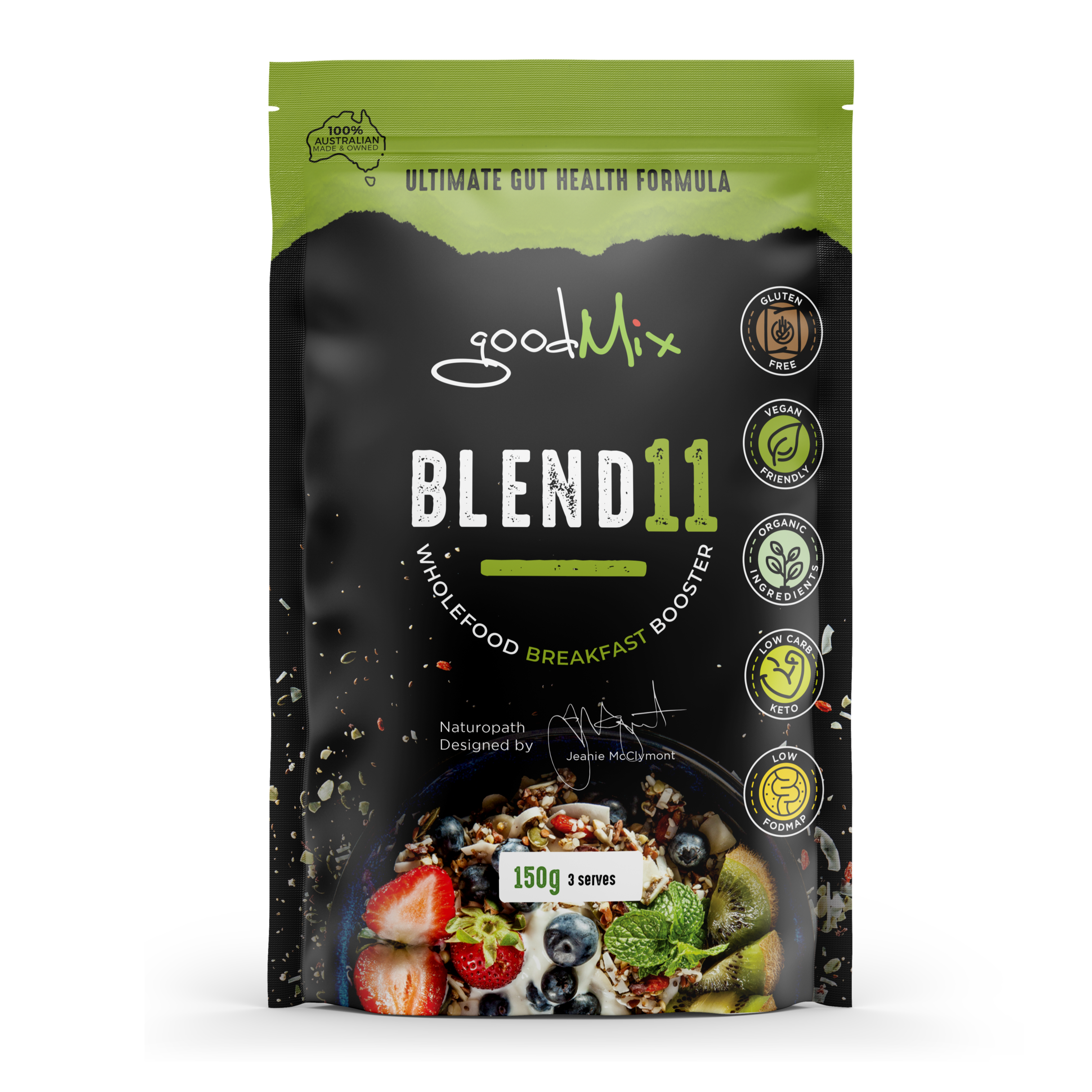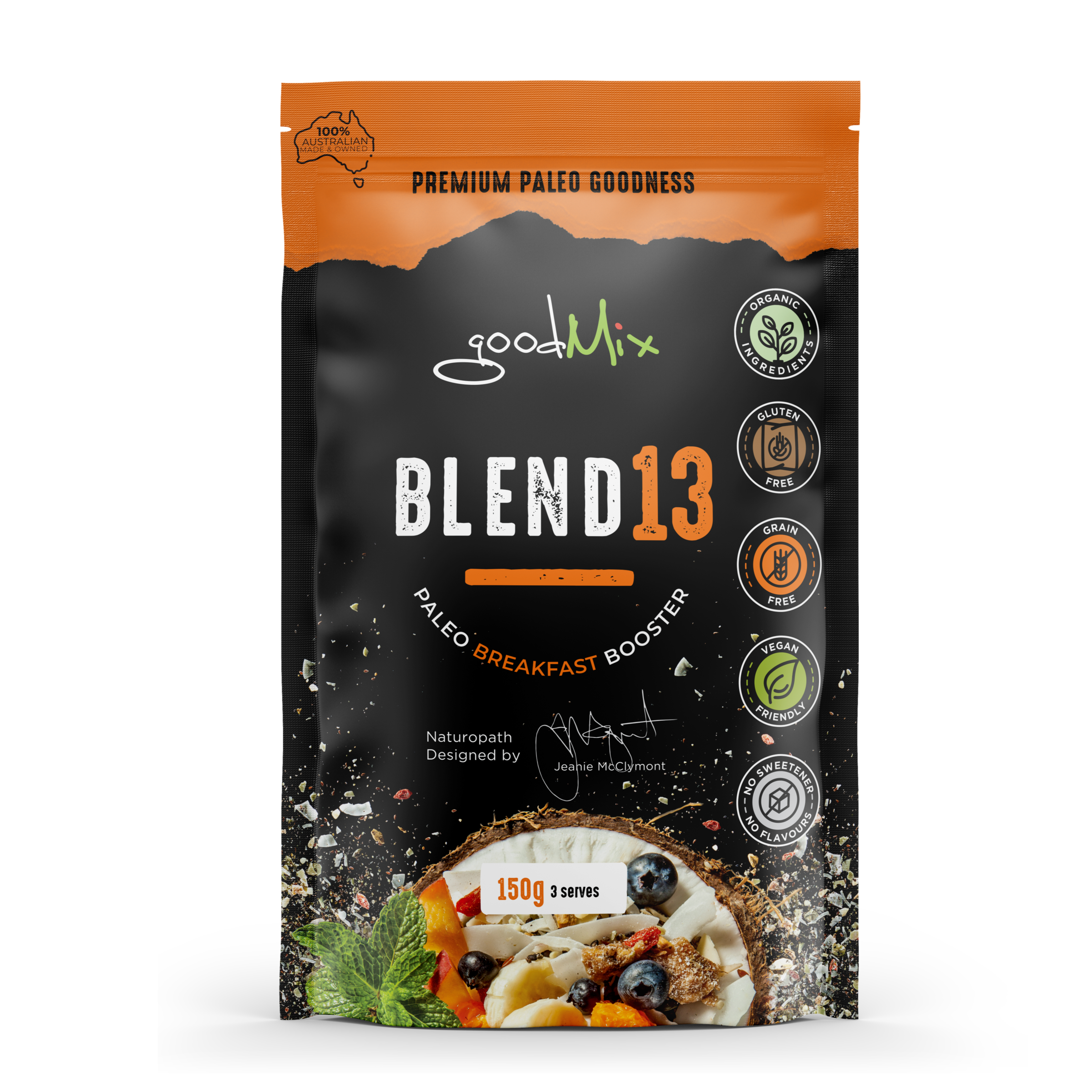
Are Seed Oils Bad For You?: The Effects of Seed Oils in Your Diet
Everyone is talking about how bad seed oils are at the moment - & since our goodMix products contain a LOT of seeds, we thought we’d better explain why it’s still ok / good / healthy to eat seeds (and why industrial seed oils are definitely best avoided).
When we talk about 'seed oils' in the context of health, it's essential to differentiate between two very different things: naturally occurring oils (found in whole seeds) and industrial seed oils (extracted and refined from seeds using chemical processes). Both have dramatically different effects on human health. While high omega 3 whole seeds like flax, chia and hemp offer many benefits, industrial seed oils like soybean, canola, and corn oil have become a staple in modern diets and are contributing to a host of health issues.
This post explains why industrial seed oils should be avoided, the science behind their harmful effects, and practical tips on how to reduce their consumption.
Industrial Seed Oils vs Natural Whole Seeds: What Are Industrial Seed Oils?
Industrial seed oils are extracted from seeds like soybeans, corn, cottonseed, safflower, and canola, using high heat and chemical solvents such as hexane. These oils are then refined, bleached, and deodorized to make them palatable. The result is a highly processed oil rich in omega-6 fatty acids, which are abundant in the modern Western diet.
While omega-6 fats are not inherently bad, their overwhelming presence in our diet—combined with a lack of omega-3 fatty acids—leads to an unhealthy imbalance that disrupts various bodily functions. In contrast, whole seeds contain natural, unprocessed oils in less extreme ratios, along with fibre, vitamins, minerals, and antioxidants that work synergistically to support health.
How Industrial Seed Oils Harm Human Health
1. Cell Membrane Integrity and Function
Cell membranes are made up of lipids (fats) that play a crucial role in cellular communication and function. The high omega-6 content in industrial seed oils distorts the balance of fats in cell membranes. Omega-3 fats (from flaxseeds, chia seeds, fatty fish and grass fed meat) provide flexibility and proper function, while excess omega-6 fats from industrial seed oils make cell membranes more rigid and prone to dysfunction. This imbalance affects the way cells interact with each other, impairing overall function and contributing to chronic diseases.
2. Inflammatory Pathways
Omega-6 fatty acids are precursors to pro-inflammatory molecules called ‘eicosanoids’, which play a role in the body's immune response. However, when omega-6 is consumed in excess (as it is with industrial seed oils), it leads to chronic, low-grade inflammation, a major driver of conditions like heart disease, arthritis, and autoimmune disorders. Omega-3 fatty acids, in contrast, are anti-inflammatory and help balance these pathways.
3. Cardiovascular Health
Excessive omega-6 intake from industrial seed oils has been linked to poor cardiovascular outcomes. It promotes the oxidation of LDL cholesterol, which is a key step in the development of atherosclerosis (the buildup of plaque in arteries). This can damage the endothelium (the lining of blood vessels), increasing the risk of heart disease. Whole seeds like flax and chia, which are rich in omega-3s, help lower inflammation and promote healthy HDL cholesterol levels, protecting cardiovascular health.
4. Brain Health and Cognitive Function
The brain is made up of nearly 60% fat, and the type of fat you consume affects your brain function. Industrial seed oils, with their high omega-6 content, can increase inflammation in the brain, impair the blood-brain barrier, and contribute to conditions such as depression, anxiety, and neurodegenerative diseases like Alzheimer's. Omega-3 fats, on the other hand, are essential for cognitive function, mood regulation, and overall brain health.
5. Skin Health
Industrial seed oils have been linked to skin problems like acne, eczema, psoriasis, and rashes due to their inflammatory effects. Inflammation triggered by excess omega-6 can disrupt skin barrier function, impair wound healing, and make conditions like acne worse. By contrast, omega-3-rich seeds can help reduce skin inflammation and promote healing.
6. Gut Health and Function
The gut lining is extremely sensitive to inflammation, and a diet high in omega-6 from industrial seed oils promotes intestinal inflammation, which can compromise gut integrity. This can lead to a condition called leaky gut, where toxins such as lipopolysaccharides (LPS) pass through the gut lining into the bloodstream, triggering systemic inflammation. Omega-3s, by contrast, support gut health by reducing inflammation, supporting the gut barrier, and promoting the production of short-chain fatty acids (SCFAs) that nourish the gut microbiome.
7. Immune Function
The balance of omega-3 to omega-6 fats has a direct impact on immune system function. Excessive omega-6 from industrial seed oils can suppress the immune response, leading to an increased susceptibility to colds, flus, and autoimmune diseases. It also contributes to chronic inflammation, which is a hallmark of most diseases. Omega-3 fats, found in seeds like chia and flax, help modulate the immune response, reducing chronic inflammation and promoting optimal immune function.
8. Aches, Pains, and Inflammation
Industrial seed oils are major contributors to systemic inflammation, which can worsen conditions like arthritis, myofascial pain, stiffness, and generalized aches and pains. Omega-3s, by contrast, are known for their anti-inflammatory properties and can help alleviate pain and reduce symptoms in people with inflammatory conditions.
The Difference Between Whole Seeds and Industrial Seed Oils
Whole seeds like flax and chia provide omega-3 fatty acids, fiber, and antioxidants that benefit overall health. These seeds support a healthy inflammatory balance, nourish cell membranes, and promote brain, heart, and skin health. Omega-3-rich seeds also have a favorable ratio of omega-3 to omega-6, which helps maintain a healthy fatty acid balance in the body.
In contrast, industrial seed oils, which are high in omega-6, have been stripped of all the beneficial components found in whole seeds. When consumed in excess, these oils disrupt the omega-3 to omega-6 balance, promoting chronic inflammation and contributing to many of the health issues mentioned above.
Practical Tips to Reduce Industrial Seed Oils
1. Cook with Stable Fats: Use healthier cooking fats like extra virgin olive oil, coconut oil, butter, or ghee. These fats are more stable and less prone to oxidation during cooking.
2. Avoid Processed Foods: Industrial seed oils are abundant in processed and packaged foods like snacks, crackers, cakes, bars, poor quality chocolate and confectionary, biscuits, salad dressings, and margarine. Stick to whole, unprocessed foods as much as possible.
Note - most restaurants / cafes (and almost all fast food outlets) use industrial seed oils to cook in (as it’s cheaper).
3. Read Labels: Check the ingredient list on packaged foods for oils like ‘vegetable oil’, soybean oil, canola oil, rapeseed oil, corn oil, or safflower oil. Opt for products made with healthier oils like olive oil or avocado oil.
4. Snack on Whole Seeds and Nuts: Replace processed snacks with whole food options like almonds, walnuts, chia seeds, hempseeds and flaxseeds. These provide healthy fats, fiber, and essential nutrients.
5. Balance Omega-3 and Omega-6: Make an effort to consume more omega-3-rich foods like fatty fish, chia seeds, flaxseeds, and walnuts, while cutting down on omega-6-rich seed oils. Choose grass fed over grain fed meat and pastured / proper free range eggs.
Conclusion
While fats are essential to health, not all fats are created equal. Industrial seed oils are a modern invention that the human body is not well equipped to handle. They disrupt the balance of omega-3 and omega-6 fats, contributing to chronic inflammation, poor cardiovascular health, cognitive decline, skin issues, and more. By reducing your intake of industrial seed oils and opting for natural, whole-food sources of fats like omega-3-rich seeds, you can significantly improve your health, protect your cells, and reduce the risk of inflammation-related diseases.
Avoid the processed oils wherever you can, embrace natural whole seeds and nuts, coconut, grass fed animal fat and oily fish.
*For the record - us naturopaths have been preaching this fat message for decades, and I do keep all of this in mind (plus a lot of other things) when designing products. Hence - you’ll notice a huge difference between Blend11 and Blend13 when compared to regular seed blends, if you were to examine the fatty acid quality and ratios, ours will come out on top every time.
FYI - Nuts and Seeds Ranked by Omega-3 Content (Highest to Lowest)
Omega-3 fatty acids, especially alpha-linolenic acid (ALA), are found in higher concentrations in some nuts and seeds. Here’s a list ranked from highest to lowest omega-3 content:
1. Flaxseeds
- Omega-3 content: ~22,800 mg per 100g
- High in ALA, flaxseeds are the richest plant-based source of omega-3.
2. Chia Seeds
- Omega-3 content: ~17,830 mg per 100g
- Another excellent source of ALA, chia seeds also provide fiber and antioxidants.
3. Hemp Seeds
- Omega-3 content: ~9,300 mg per 100g
- Contains a good balance of omega-3 to omega-6 fatty acids.
4. Walnuts
- Omega-3 content: ~9,080 mg per 100g
- The only nut with significant amounts of omega-3 ALA.
5. Pecans
- Omega-3 content: ~990 mg per 100g
- Lower in omega-3 compared to seeds but still provides some ALA.
6. Pumpkin Seeds
- Omega-3 content: ~830 mg per 100g
- A source of both omega-3 and omega-6, but predominantly omega-6.
7. Almonds
- Omega-3 content: ~6 mg per 100g
- Very low in omega-3, primarily provides other healthy fats and nutrients.
8. Cashews
- Omega-3 content: ~5 mg per 100g
- Minimal omega-3 content but still nutrient-dense.
9. Hazelnuts
- Omega-3 content: ~4 mg per 100g
- Low in omega-3 but rich in vitamin E and other healthy fats.
10. Brazil Nuts
- Omega-3 content: ~1 mg per 100g
- Very low in omega-3, but an excellent source of selenium.
So for improving your omega-3 to omega-6 ratio using whole seeds, flaxseeds, chia seeds and hemp seeds are your best options (but definitely include some oily fish and grass fed everything wherever you can as well)!




